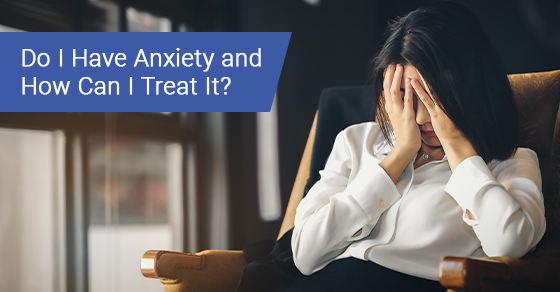Dec
Do I have anxiety and how can I treat it?
Posted By Sue Sonshine

Does you have fear or worry that at times seems out of control? Anxiety is one of the most common mental health disorders in Canada. It is by far the most prevalent mental illness in our modern world. Anxiety is something that everyone experiences from time to time. It is experienced differently by everyone. Anxiety disorders affects 11 per cent of Canadian adults each year. It is one of the most common mental health concerns for children and adults affecting 20 per cent of children and adolescents over their lifetime. More than 25 per cent of adults in Canada with anxiety report that their anxiety interferes with their lives. Anxiety experiences differ from person to person. Everyone has moments of worry or anxiety which can be a normal reaction to stress. However when these feelings occur too often and start to interfere with your ability to carry out daily tasks it may mean you have a problem with anxiety.
Six signs of Anxiety:
- Worry: Constant and overwhelming worry about various everyday aspects of life or about a future event often exaggerated to the actual situation, overthinking to the point where it interferes with your work and your relationships.
- Physical Symptoms: Tension headaches, stomach aches, fatigue, muscle tension, restlessness, wear and tear on our bodies, lightheaded, rapid breathing, heart palpitations, sweating, dizziness, hyperventilating, isolation.
- Irritability: Feeling on edge or having a short temper
- Sleep interruptions: difficulty falling asleep and staying asleep and restless sleep
- Avoidance: Avoiding situations due to fear
- Difficulty concentrating: It can be challenging to focus on tasks and make decisions
There are evidence-based psychological treatments that are proven to help you. I am a trained and qualified psychotherapist who can assess your situation and provide you with specific techniques for you to better cope with and overcome your anxiety.
I work with you collaboratively to provide you Cognitive Behaviour Therapy (CBT) tailored to meet your specific needs. CBT is the most well researched psychotherapy for Anxiety and has repeatedly demonstrated effectiveness for a range of anxiety disorders. CBT psychotherapy helps you identify and change negative thought patterns and behaviours and incorporate healthy lifestyle changes and prioritize self-care activities that bring you joy and relaxation. CBT techniques for anxiety focus on helping you reduce your worry and learn how to manage problems more efficiently when they arise.
I also provide another psychotherapy approach to treat anxiety which is called Acceptance and Commitment Therapy (ACT). ACT aims to change the relationship you have with your negative experiences such as negative thoughts, emotions, memories and physical sensations. Treatment includes awareness of your attempts to control or avoid experiences as well as learning to accept your fears. ACT therapy helps you to clarify and live your best life. ACT is focussed on committed change and it can help you to take steps and act in a way that is consistent with your values and goals.

